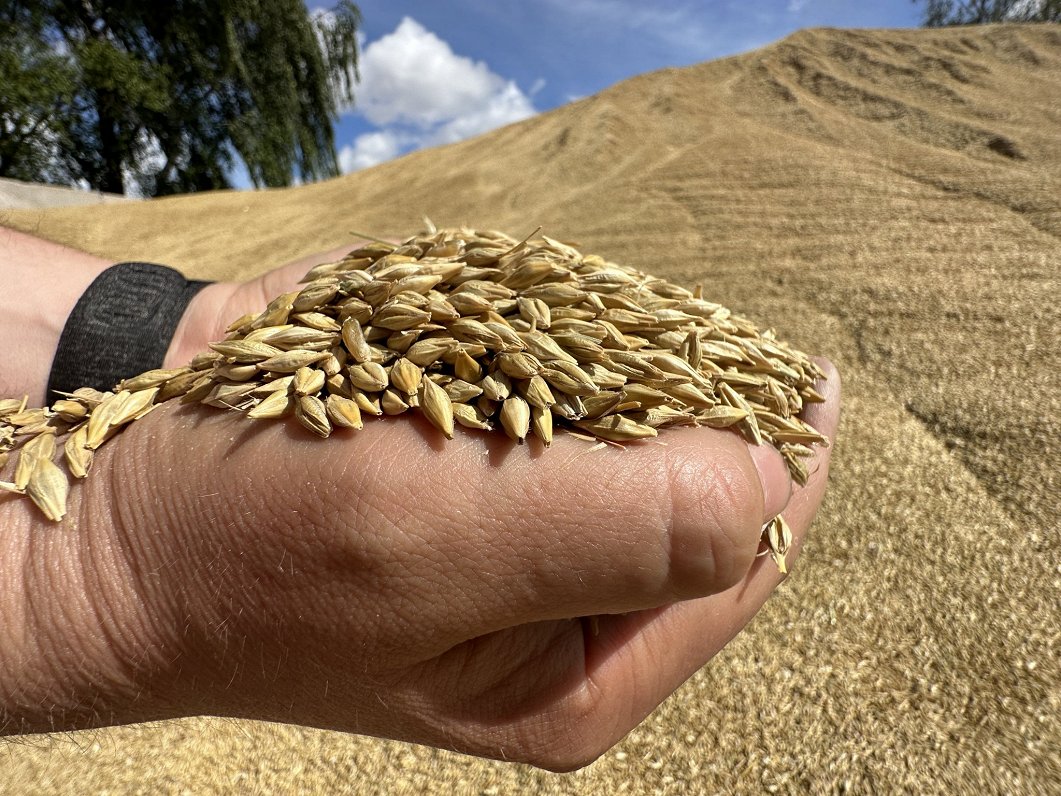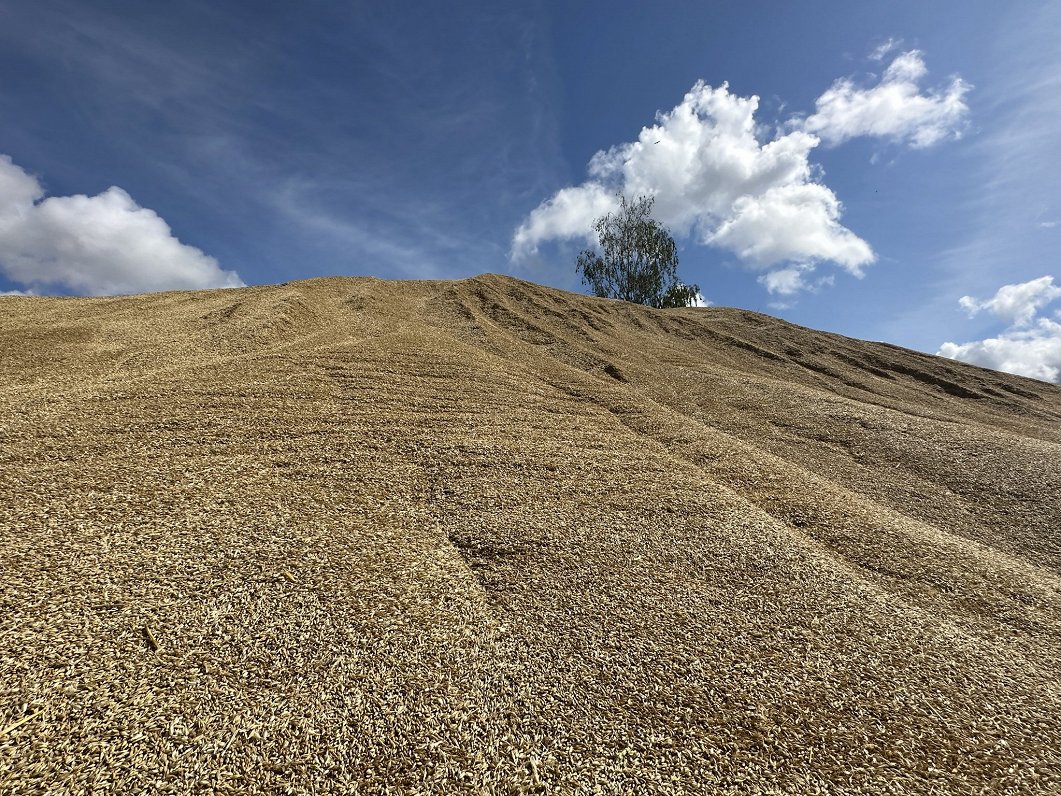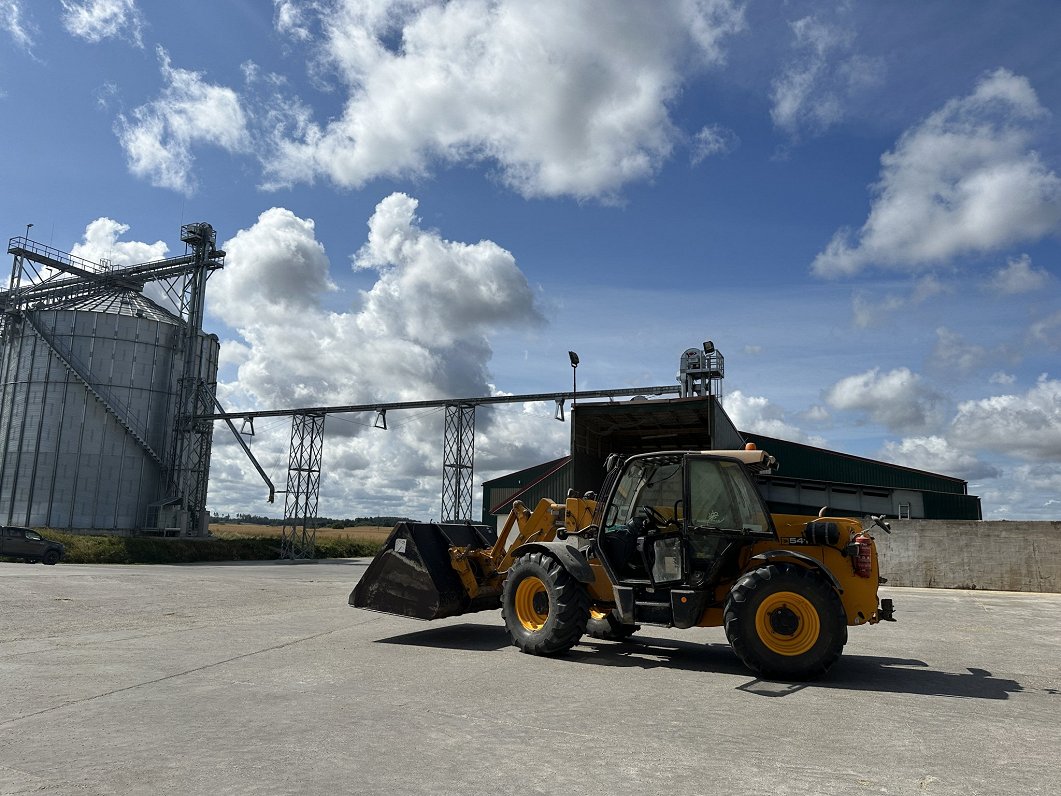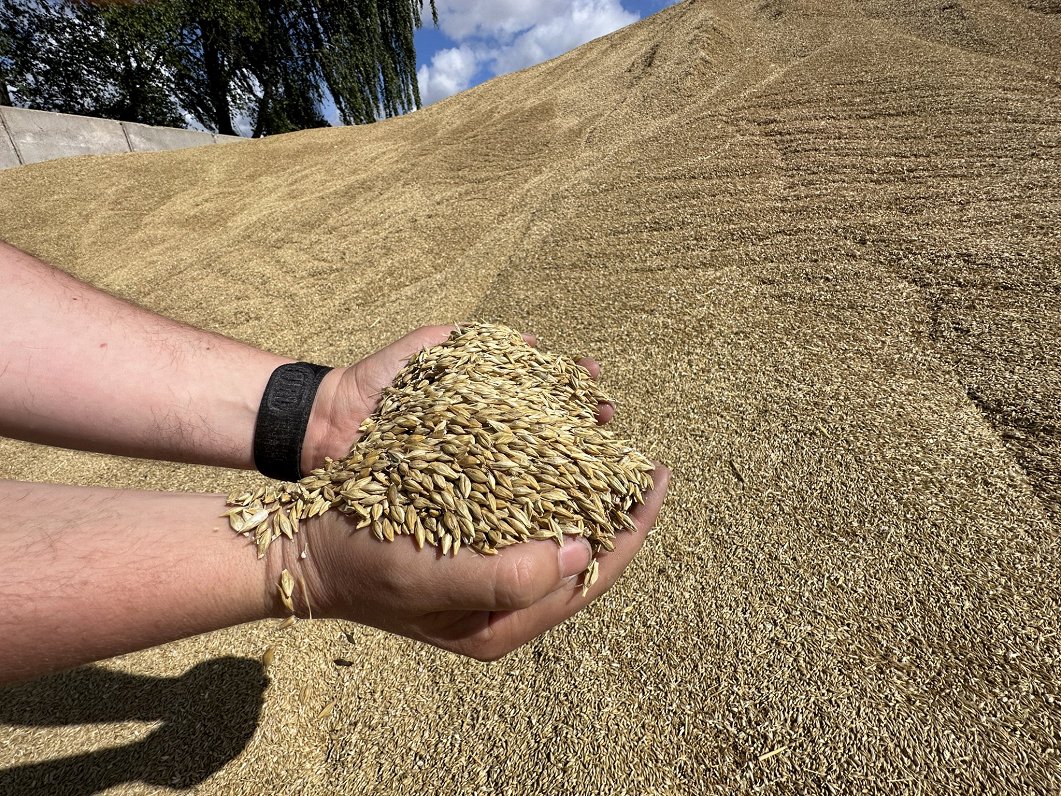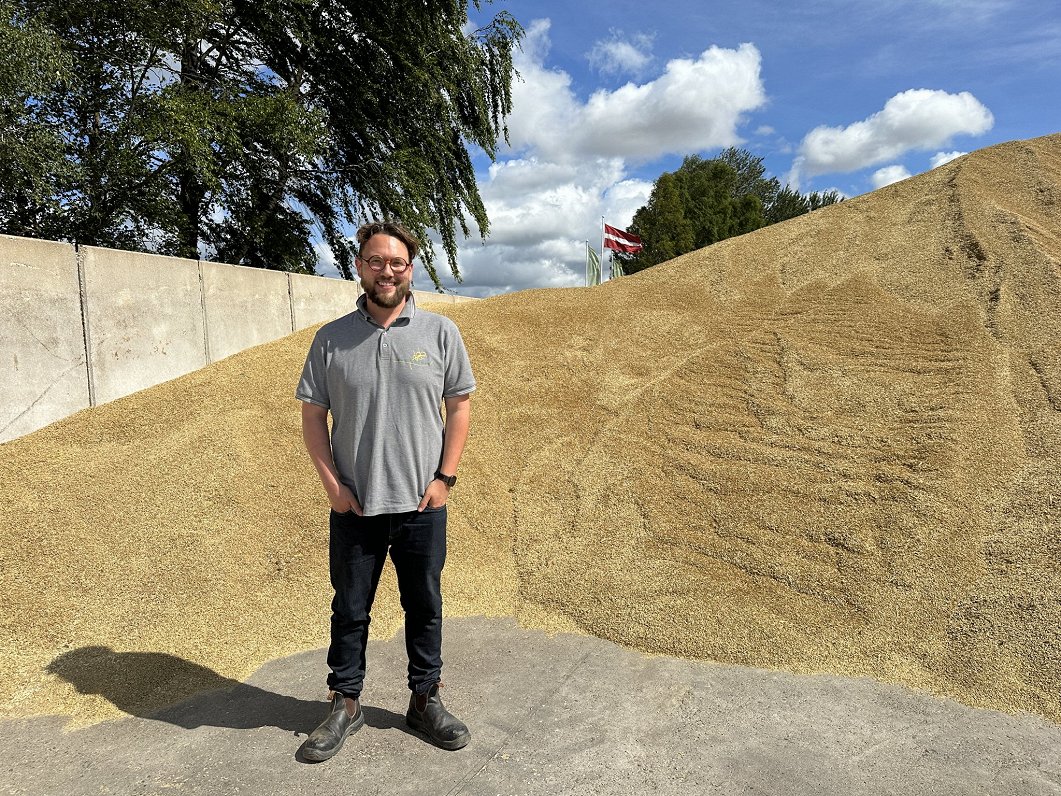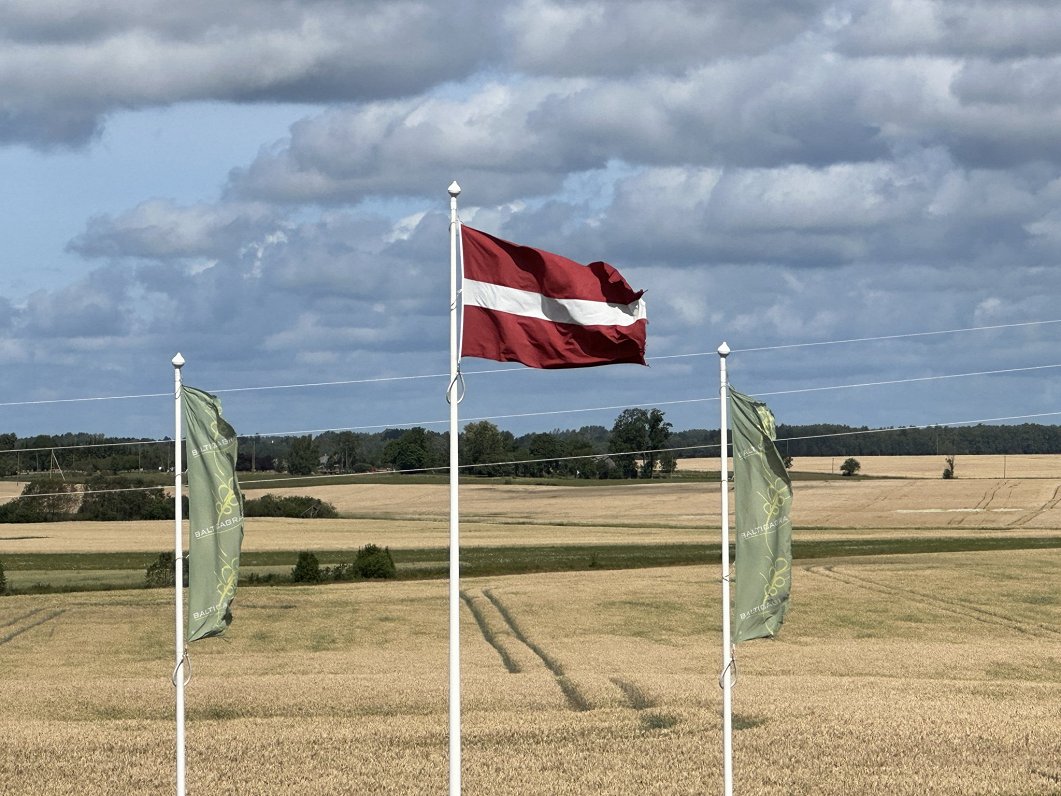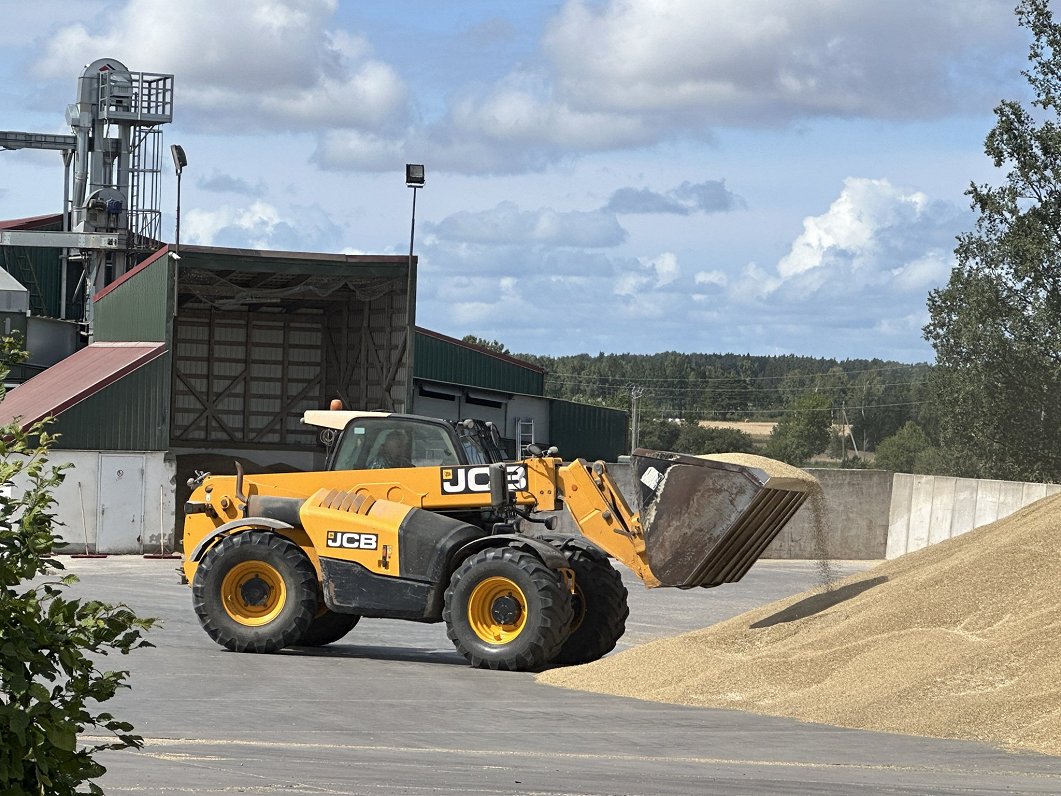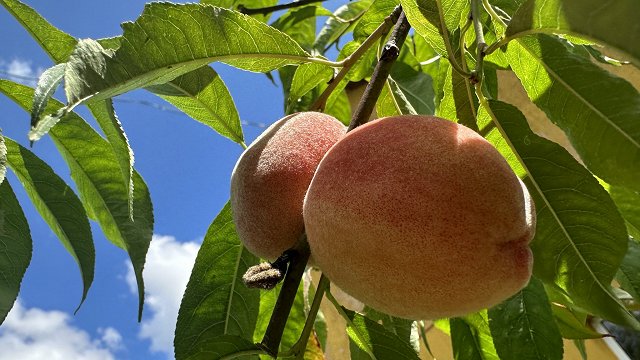"Balticagrar" Ltd board member Florian Reitzle is a German who came to Latvia to learn the practice of agriculture, but he decided to stay and now puts his knowledge to use in Kurzeme. Overall, the company operates more than 3,000 hectares. Of those, 450 hectares were sown with winter barley, which is now harvested.
The farmer said: “We started harvesting the winter barley a week ago. It's the first culture, and for some time the only one we can harvest. We are generally satisfied with yields because we no longer expect record yields, it was clear that average yields would be 10 to 15% lower than in recent years."
"The impact is felt from frost. 5 to 10% of the ears were completely empty, and the number of plants per square meter fell sharply," Reitzle said.
The farm is located 30 kilometers from the port of Liepāja, so the grain is exported.
The quality of barley is relatively good, Reitzle said: “The quality is quite ok. We are currently delivering everything to the port as grains of Class 1. That rain, which peaked in mid-June, helped quality, it's good enough for exports.”
Located nearby is a farm "Pīlādži". Its representative Edgars Putra, who is also a politician from the United List, said that eight different crops are cultivated on the family farm, including peas, beans, oats, and others.
Winter barley has grown even better than expected, but frost and drought have done their own.
“It has had an impact on the overall harvest, because for winter barley the yield is 25% to 30% smaller than we hoped, it could already be seen in late spring, the number of grains in the ear was half smaller, and the ear itself was half shorter,” he said.
On the seaside, where the rain has been less and the soils are sandier, the situation is worse, notes Putra.
Barley prices are nearly half lower than last year, and the cost increases have to be taken into account, as well as fertilizer purchased at high prices last year. The price is influenced by the war in Ukraine, said Edgars Putra.
"Buyers also don't hide, for example, rapeseed they bring in from Ukraine because it has a higher oil content — 46% to 47% versus our 42%. [..] For barley the stock price is €185-190 against last year's price of around €380. A 200 euro price difference, price is much lower," said Putra.
In spite of the circumstances, farmers are increasingly thinking about how to adapt to both weather crises and war conditions. Fertilizers such as phosphorus are not purchased in Russia or Belarus but imported from Morocco.
